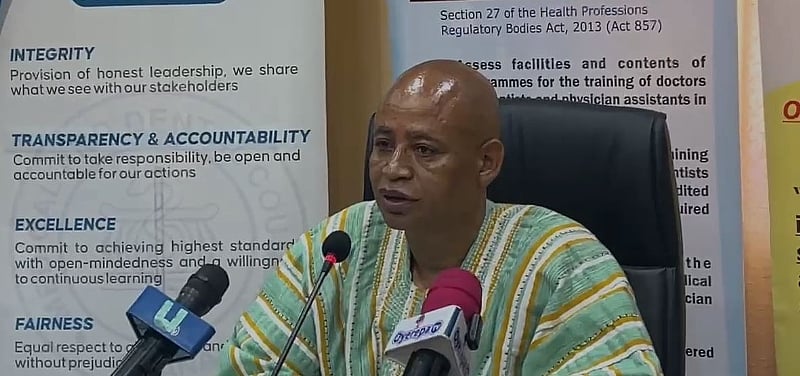The Medical and Dental Council of Ghana (MDC) has issued a stark warning about the pervasive threat of quackery within the nation’s healthcare system. Quackery, the illegal practice of medicine by unqualified individuals, poses a significant danger to public health and safety, undermining the integrity of the medical profession and eroding public trust. The MDC has highlighted the alarming prevalence of this illegal activity, revealing recent arrests and ongoing investigations into individuals practicing without licenses or using forged credentials. The Council’s efforts underscore the persistent challenge of identifying and prosecuting these fraudulent practitioners, particularly given the often subtle nature of their operations. The MDC recognizes the urgent need for robust measures to combat quackery and protect the public from its potentially devastating consequences.
The escalating concern over unqualified practitioners masquerading as licensed professionals has prompted the MDC to develop proactive strategies to enhance transparency and accountability within the healthcare system. One such initiative is the proposed “practitioner name tag and stamp policy,” a collaborative effort with the National Health Insurance Authority (NHIA). This policy mandates that all healthcare professionals display easily verifiable identification, including their name, photograph, and professional designation. This measure aims to empower patients to confirm the legitimacy of their healthcare providers, thereby reducing the risk of falling prey to unqualified or fraudulent practitioners. The initiative also underscores the MDC’s commitment to fostering a culture of accountability within the healthcare sector, ensuring that practitioners are readily identifiable and their qualifications easily verifiable.
The challenge of combating quackery is exacerbated by the often sophisticated methods employed by these individuals to deceive both patients and regulatory bodies. Some unscrupulous individuals present forged qualifications, making it difficult for authorities to verify their credentials. Others exploit loopholes in the system, operating in unregulated or poorly monitored healthcare settings. The MDC’s ongoing investigations have revealed the extent of this deception, with cases involving fabricated documents and misrepresentation of qualifications. This underlines the need for more stringent vetting processes and robust mechanisms for verifying the authenticity of professional credentials. Furthermore, increased public awareness and education are crucial in empowering individuals to identify and report suspected cases of quackery.
The MDC’s partnership with the NHIA in implementing the name tag and stamp policy represents a significant step towards strengthening regulatory oversight and improving patient safety. The NHIA, as the primary administrator of health insurance in Ghana, plays a critical role in ensuring the quality and integrity of healthcare services. By collaborating with the MDC, the NHIA can leverage its extensive network and resources to enforce the policy and monitor compliance across the healthcare system. This collaborative approach is essential for creating a unified front against quackery and protecting the public from its harmful effects. The anticipated rollout of the policy in 2026 signifies a crucial milestone in Ghana’s ongoing efforts to enhance healthcare regulation and ensure patient safety.
Beyond the immediate implementation of the name tag and stamp policy, the MDC is committed to a broader range of initiatives aimed at tackling quackery from multiple angles. These include strengthening the vetting process for healthcare professionals, enhancing surveillance and monitoring of healthcare facilities, and increasing public awareness about the risks of quackery. The Council also recognizes the importance of engaging with the public, encouraging individuals to report suspected cases of illegal medical practice. By empowering citizens to actively participate in safeguarding the integrity of the healthcare system, the MDC aims to create a collaborative environment where quackery is effectively challenged and exposed. This multifaceted approach is essential for addressing the complex and evolving nature of this persistent threat to public health.
The MDC’s ongoing battle against quackery highlights the crucial role of regulatory bodies in protecting public health and upholding the ethical standards of the medical profession. The commitment to implementing proactive measures, such as the practitioner name tag and stamp policy, demonstrates the Council’s dedication to transparency and accountability within the healthcare sector. By working in partnership with other stakeholders, such as the NHIA, the MDC aims to create a robust and effective framework for combating illegal medical practice and safeguarding the health and well-being of the Ghanaian public. The ongoing efforts signify a crucial step towards building a more secure and trustworthy healthcare system for all citizens.


